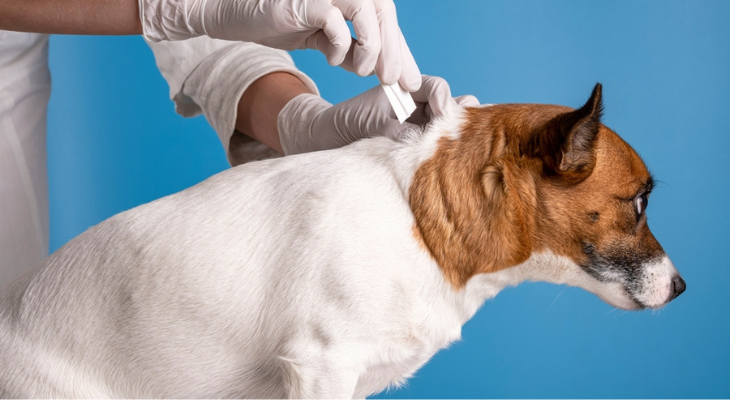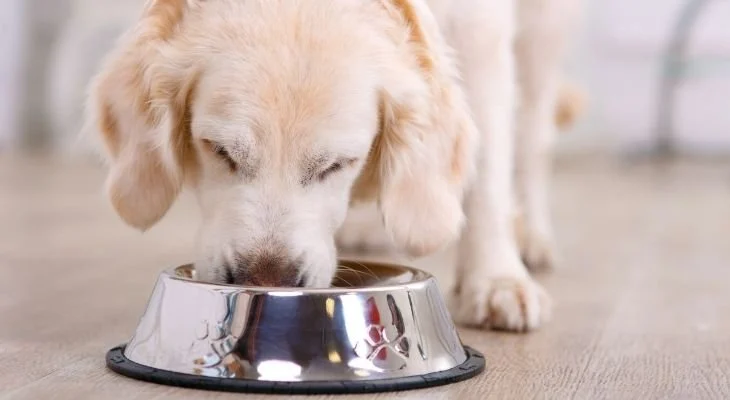Providing your puppy with a nutritionally balanced diet is essential for healthy growth and development. With so many options available, selecting the right food can be overwhelming. These expert tips will help you choose the best diet for your new furry friend.
🥩 Choose Puppy-Specific Food
Puppy food is formulated to meet the higher nutritional needs of growing dogs. Unlike adult dog food, which contains lower levels of protein, fat, and calcium, puppy food provides essential nutrients for bone development, muscle growth, and immune support.
📌 AAFCO Guidelines for Puppy Food:
✔️ Minimum 22.5% protein (compared to 18% in adult dog food)
✔️ Minimum 8.5% fat (compared to 5.5% in adult dog food)
Feeding your puppy low-protein or low-fat food can lead to slow growth, muscle weakness, and frequent illnesses. A calcium-deficient diet may affect bone and dental development and could cause weakness, seizures, or muscle spasms.
🔍 Check the Ingredients List
Quality puppy food should list animal protein (such as beef, poultry, or fish) as one of the first ingredients. While some fillers should be avoided, grains and byproducts are safe and provide important nutrients.
📌 Did You Know?
✔️ Grains provide essential vitamins and fiber for digestion.
✔️ Animal byproducts (such as organ meat) are often more nutrient-dense than the cuts of meat humans eat.
🐶 Watch for Grain Allergies: If your puppy has itchy skin, frequent ear infections, inflamed paws, or digestive issues, it may be allergic to grains. In this case, consult your veterinarian about switching to a grain-free formula.
✔️ Look for the AAFCO Seal of Approval
To ensure your puppy gets a balanced diet, check the packaging for a statement that reads:
“This product is formulated to meet the nutritional levels established by the AAFCO Dog Food Nutrient Profiles.”
This guarantees that the food meets the recommended nutritional standards for growing puppies.
🐕 Consider Your Puppy’s Breed & Size
Large and small breed puppies have different dietary requirements:
✔️ Large breeds need precise nutrient levels to support healthy bone growth and prevent joint issues.
✔️ Small breeds may struggle with larger kibble sizes, increasing the risk of choking.
Many brands offer specialized formulas designed for large or small breed puppies to support proper development.
🥘 Wet vs. Dry Puppy Food – Which Is Best?
Your choice between dry, wet, or mixed food depends on your puppy’s needs and lifestyle:
✔️ Dry Food: Stays fresh longer, promotes dental health, and is more budget-friendly.
✔️ Wet Food: Contains higher moisture content, making it easier to chew and more palatable for picky eaters.
Many owners choose a combination of both for variety and balanced nutrition.
👩⚕️ Consult Your Veterinarian for Expert Guidance
With countless brands and formulations available, selecting the right puppy food can be confusing. Your veterinarian can recommend high-quality, breed-appropriate food tailored to your puppy’s nutritional needs and health conditions.
🐾 Is your new puppy due for a checkup? In addition to providing dietary guidance, your vet can ensure your puppy is healthy, vaccinated, and thriving. Contact our office to schedule an appointment today!
📖 References:
- Association of American Feed Control Officials (AAFCO) – Nutritional Adequacy for Dog & Cat Food
- American Kennel Club (AKC) – Puppy Feeding Fundamentals (May 28, 2024)
- PetMD – How to Choose the Right Food for Your Puppy (January 16, 2023)
- American Kennel Club (AKC) – How to Choose the Best Dog Food (June 7, 2024)
- Purina – When to Start Feeding Puppies Wet Food (December 19, 2024)
- NBC News – The Best Puppy Food of 2025, According to Veterinarians (May 9, 2024)







